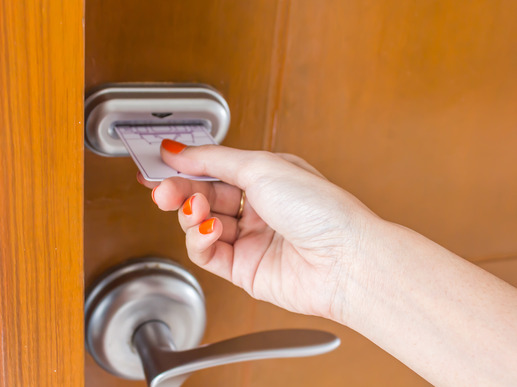A hotel in Jacksonville was recently ordered to pay more than $2,000.00 in damages to a long-term guest it locked out for failing to pay his room fees.
In 2009, Eric Fleming moved into a room in the Scottish Inn hotel in Jacksonville, Florida. At first he paid $27 per night, but after about six months, he began paying bi-weekly, which is when he received his unemployment checks.
One week Mr. Fleming’s unemployment check did not arrive when expected. He asked the hotel manager to extend his stay, and the manager agreed to extend, but only to a particular deadline date.
When the deadline date came, Mr. Fleming, whose unemployment check still had not arrived, came home one day to find himself locked out of his room. He contacted management, which demanded payment. Mr. Fleming, having no money to pay, left, unable to obtain his possessions.
After three days of being locked out of his room, Mr. Fleming returned to the hotel. His unemployment check had finally arrived. The manager asked him to pay the balance due. When Mr. Fleming saw that he was being asked to pay for the three nights he had been locked out, he refused to pay the bill. He left, found an attorney, and sued the hotel.
Florida law has a procedure for hotels to swiftly deny room access to non-paying guests – but only to “transient” guests. If a guest is “nontransient,” the hotel must file an eviction action.
The Fourth Judicial Circuit in Duval County found that, since the hotel had been Mr. Fleming’s sole residence for almost two years, and the hotel knew it, he was “nontransient” and thus not subject to the summary removal procedures allowed for hotels in Chapter 509, Florida Statutes. To terminate a tenancy of a nontransient guest, the court said, a hotel must follow the procedures outlined for residential landlords in Chapter 83, Florida Statutes.
The court found that the hotel, by turning off Mr. Fleming’s electronic card key, violated Section 83.67(2), Florida Statutes, which makes it unlawful for landlords to prevent tenants “from gaining reasonable access to the dwelling unit by any means, including, but not limited to, changing the locks or using any bootlock or similar device.” Because the hotel intentionally withheld violated the statute, the court found that it was liable for statutory damages of three times Mr. Fleming’s monthly rent, pursuant to Section 83.67(6), and ordered it to pay Mr. Fleming $2,421.00 – the equivalent of three months of his rent. It also reserved jurisdiction to award costs an attorney fees.
The case is Fleming v. Master, Fla. W. Supp. 1808FLEM, Case No. 2011-SC-001400 (Fla. 4th Cir. Ct.).




(Dale) He left, found an attorney, and sued the hotel.